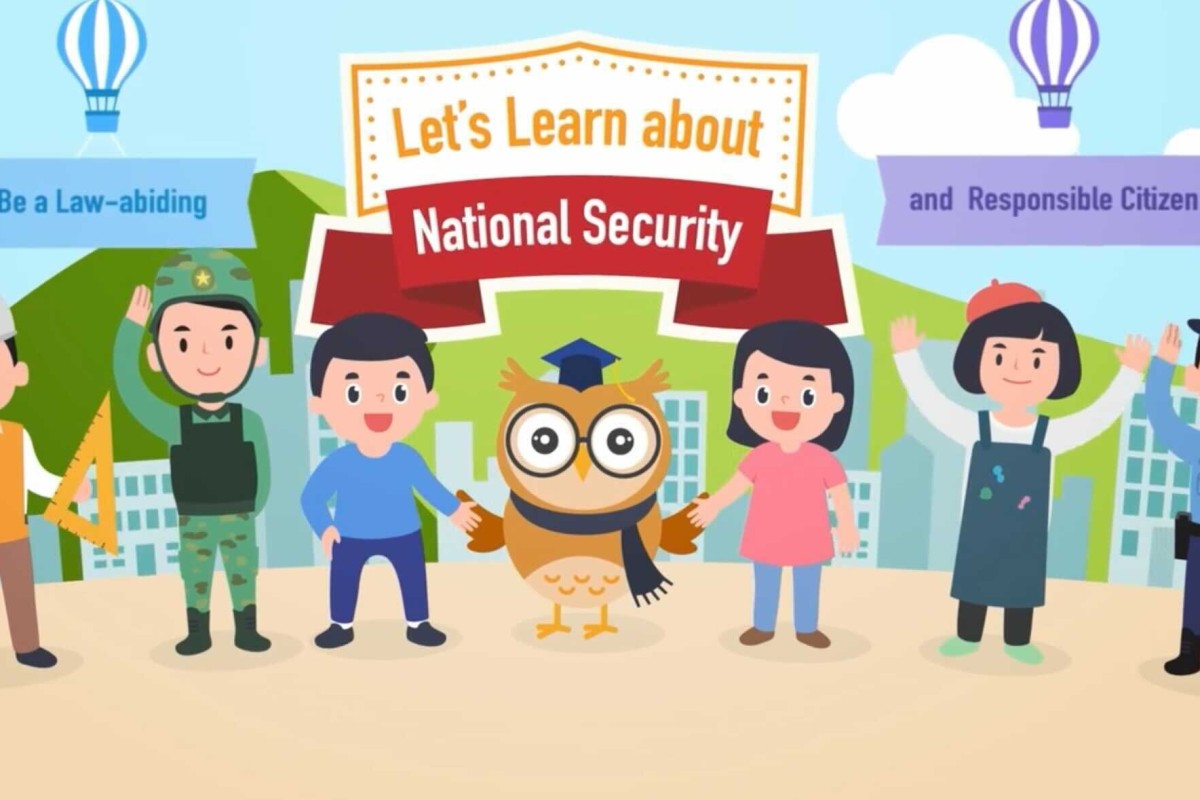
- Students will learn how to sing and ‘respectfully listen’ to China’s national anthem, as well as the importance of the People’s Liberation Army
- Schools must stop teachers and students from participating in political activities
 A 7-minute video introduces the different areas of the national security law to students, as part of the teaching materials provided by the Education Bureau to schools Photo: Handout
A 7-minute video introduces the different areas of the national security law to students, as part of the teaching materials provided by the Education Bureau to schools Photo: HandoutThe government has unveiled controversial guidelines for Hong Kong schools that include teaching students as young as six about foreign interference and subversion under the national security law.
Beijing imposed the new security law in June 2020 in response to months of often violent anti-government and pro-democracy protests in 2019.
The Education Bureau’s guidelines, released late on Thursday, show that Beijing’s plans for semi-autonomous Hong Kong go beyond quashing dissent, and aim for a societal overhaul to bring it more in line with the Communist Party-ruled mainland.
What is Hong Kong’s national security law?
“National security is of great importance. Teachers should not treat it as if it is a controversial issue for discussion as usual,” the guidelines said.
Teachers should “clearly point out that safeguarding national security is the responsibility of all nationals and that as far as national security is concerned, there is no room for debate or compromise.”
Children in primary schools will learn how to sing and “respectfully listen” to the national anthem, learn about police and the People’s Liberation Army as protectors of Hong Kong, as well as about the four main offences in the security law, including terrorism and secessionism.
All about Britain’s citizenship offer for Hongkongers
In secondary schools, students will also learn about the challenges and opportunities the Chinese nation faces on the world stage.
Some legal scholars have said the law’s language is broad and vague, and the range of activities authorities might see as potential threats to national security was unclear and fluid.
The bureau said it accepted international and private schools have different curricula, but said they had a “responsibility to help their students (regardless of their ethnicity and nationality) acquire a correct and objective understanding and apprehension of the concept of national security.”
Protesters chant slogans and gesture during a rally against the national security law in Hong Kong on July 1, 2020, on the 23rd anniversary of the city's handover from Britain to China. Photo
Schools should also stop students and teachers from participating in activities deemed political, such as singing certain songs or shouting slogans. Teachers and principals are required to inspect noticeboards and remove books that endanger national security from libraries.
The 100,000-strong Professional Teachers Union’s vice-president Tin Fong-chak, a veteran secondary school teacher, said the guidelines were stricter than expected and would affect teacher-student relations.
“The guidelines have gone into so much micro detail that the government is actually taking total control of the schools on how they should handle national security-related issues on campus,” he said. Tin questioned whether the government trusted educators’ ability to handle the subject.
Lawmakers call for cameras in classrooms
Hins Tsang, a Form Six student and spokesman for the student group Hong Kong Ideologist, believes the new guidelines went against constitutional rights.
“Exerting political pressure on schools will not make students more patriotic,” he said. “The Basic Law guarantees that we have freedom of speech, but now the guidelines say there is something we cannot debate in schools. How absurd it is!”
On banned books or posters, Hins added: “We would question if teachers or school headmasters have the ability to judge whether a word or a phrase in a book is anti-national security or not. Do we expect the schools to call police to judge for them?”